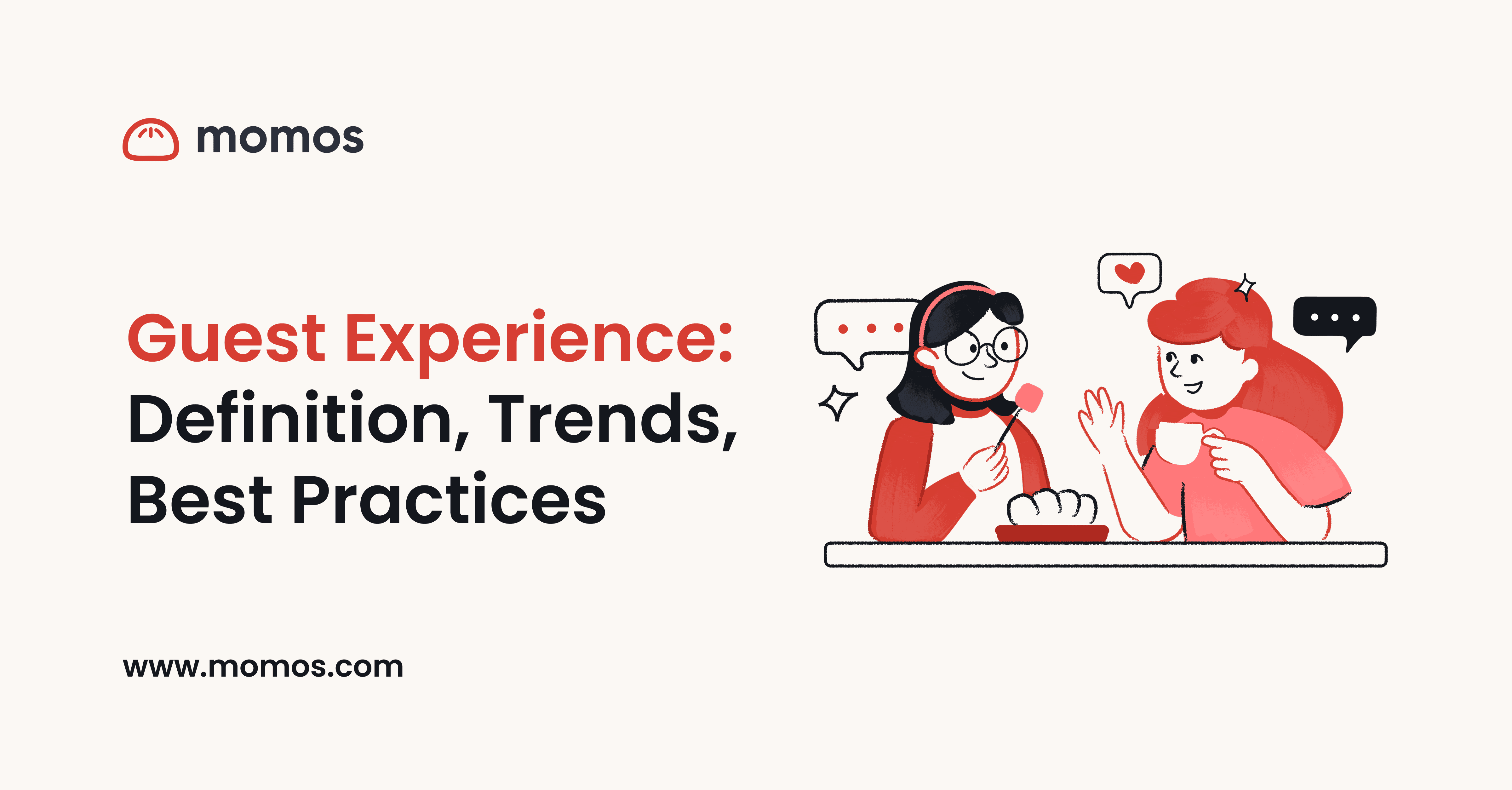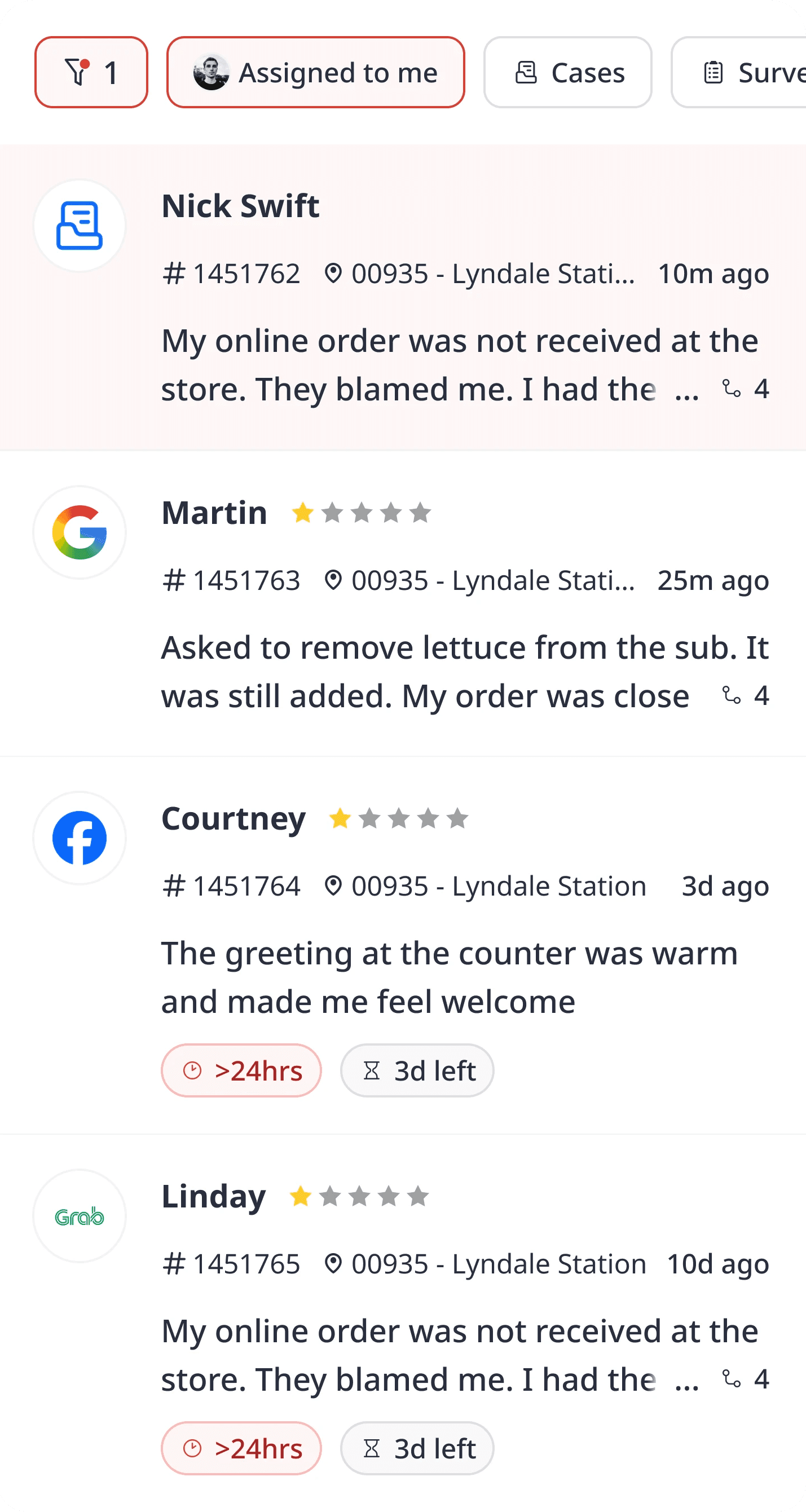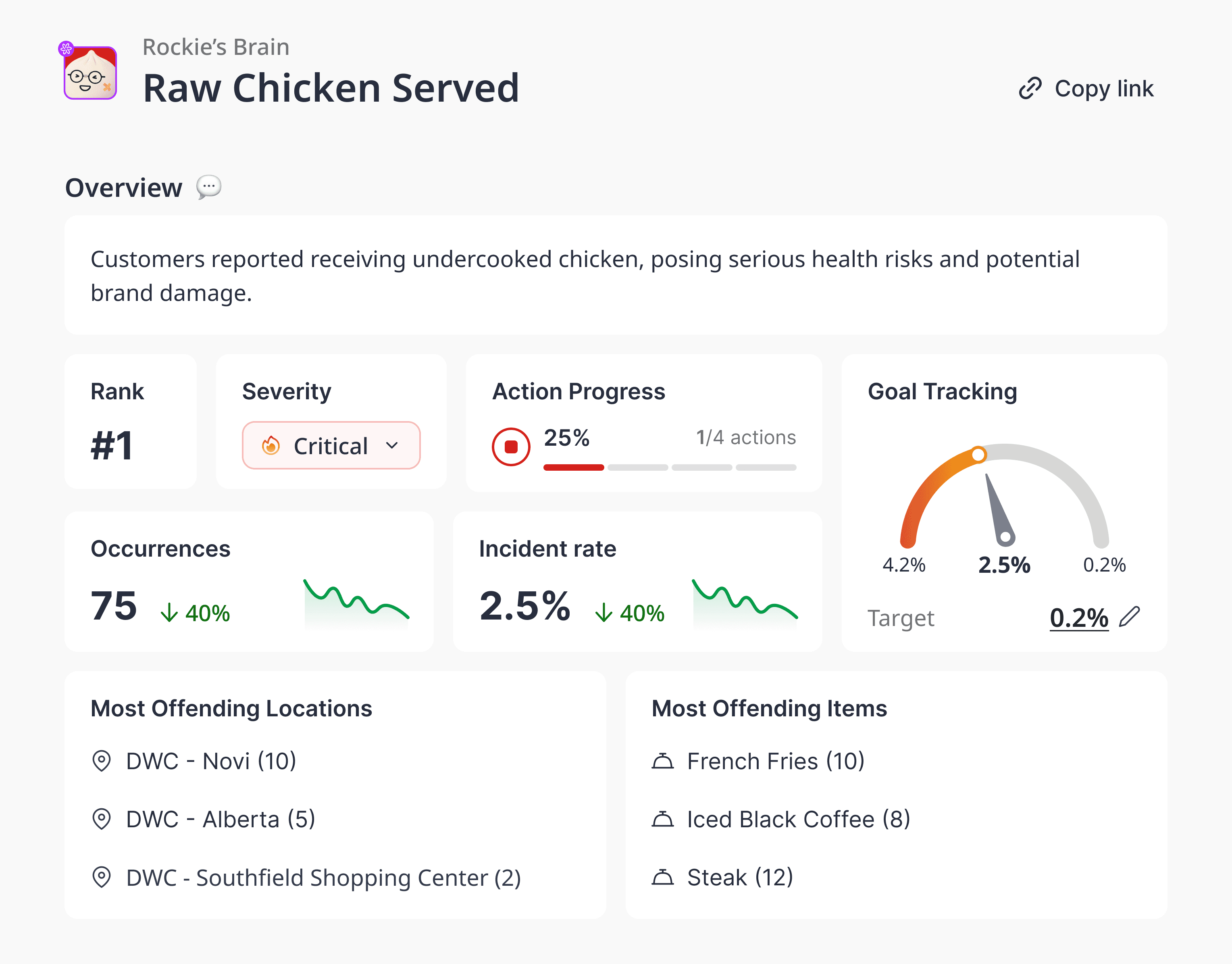
Aug 17, 2022
Sai Alluri, CEO & Co-Founder
What is a Reputation Management Tool & How is it Shaping the F&B Industry?
Contents
In the world of digitization, the importance of reputation to businesses has been at its peak.
A G2 and Heinz Marketing survey reports that 92.4% of customers are more inclined to purchase after reading a trusted review.
Today, customers are so heavily dependent on online reviews that even their food choices are driven by them. From deciding where to eat to the items to order, most people now depend on reviews for their food choices.
It means that there is an acute need for you to manage your restaurant’s online reputation if you want to succeed.
In the past, brands struggled to manage it, but with the introduction of reputation management software, things have been smoother to manage.
This article discusses the basics of restaurant reputation management tools and their impact on the F&B industry.
What Are The Types of Reputation Management?
Online reputation management refers to a complex process that includes monitoring, measuring, and often influencing the general opinion people have of your restaurant.
Given that online platforms are transparent, your efforts to build a reputation can be countered by your competitor trying to destroy it. This is also known as reputation attacks.
So, there are various reputation management options that can work together to help you create a name for yourself -
Public relations - It includes publishing different content types to provide a solution or counter the negative image that your competition is trying to build for you.
Online reviews - Here, you can use a mix of paid and organic strategies to induce customers to give you positive online reviews.
Social media management - It refers to managing your social media reputation by being proactive and responding to customer posts on various platforms like FB, Instagram, Twitter, etc.
SEO - Search engine optimization is the centre of focus of any reputation management strategy and works by building a strong online presence for your brand.
Streisand effect - Here, users attempt to hide, censor, or remove certain information only to end up publishing it even more.
What Is a Restaurant Reputation Management Tool?
While some brands prefer manual reputation management, the vastness of the internet has forced others to use dedicated software for increased control. However, since most restaurant brands appear on many channels, it can get very time consuming to manage them all and stay on top of them.
A reputation management tool is a software designed to monitor traditional and social media reviews to inform restaurants of their public perception and manage it on various channels.
It helps users keep up with mentions, comments, views, or other activities that require their attention and enables them to take the necessary action.
Why Does Every Restaurant Need Reputation Management?
You cannot have a series of bad reviews online and pretend as if nothing has happened. In this tech-savvy environment, where people do not shy away from posting their thoughts online, it can be detrimental to a restaurant’s reputation.
People seldom have a shortage of options when looking for their next dining experience. Add to that, your reputation mostly lies on customers’ word of mouth.
Here is how an efficient reputation management strategy can contribute to your business -
It helps shape diners’ decision-making about giving your restaurant a try.
Positive reputation management can create a FOMO (fear of missing out), thereby increasing the number of clients who dine at your place.
Given that there is no shortage of competition, it helps you stand out from the crowd.
It enables you to respond to negative reviews timely.
Restaurant Reputation Management Challenges
Bad reviews can cost restaurant brands heavily. The service sector is especially more prone to criticisms, often uncalled for. For example, if someone serving a table is having a bad day, the guests will blame the restaurant for it.
Today, there are many dedicated platforms for restaurant discovery, ordering and reservations. It has quickly transformed all these various websites into a place where people go to verify ratings and rankings. Also, customers today have become more aware and have realised the importance of their reviews.
Here are some of the top restaurant reputation management challenges -
Reading reviews leads to forming an opinion, which can be challenging to change.
Excess dependence on booking and ordering platforms has made it challenging for brands to manage their reputation.
Momentary discontent and unwanted rage are not considered by guests while forming an opinion about the brand.
Online Reputation Management Strategies for Restaurants
By now, you must have understood the importance of reputation management for restaurants. So, here are some strategy ideas that can help you ace the game -
Always Respond to Negative Reviews
44.6% of customersprefer visiting a restaurant that doesn’t shy away from responding to negative reviews.
In addition, over 50% of customerswould question the quality of business with negative reviews.
It showcases that a business must respond to reviews irrespective of the sentiment they carry.
While some organisations may shy away from negative criticisms, it can prove costly. Instead, if a customer has a subpar experience, it is vital to acknowledge it, apologise, and request them to give you another chance.
Read our article on “How to respond to restaurant’s food review?”
Respond to Positive Reviews Too
You may find positive reviews overwhelming and often forget the need to respond strategically.
Instead of merely replying with a “Thank you,” it is an opportunity to manage your reputation.
Use personalization, invite the audience, and make sure you do not let the opportunity go.
Also, read - “How to respond to positive customer feedback?”
Offer Direct and Private Methods of Collecting Feedback
Restaurants these days are becoming open to direct customer contact. They are willing to provide options to contact the brand directly if they have feedback. This allows them to maintain a personal relationship and have a direct line of communication with the customers. Additionally, it helps them grow their customer database.
Furthermore, it is a good technique to prevent negative feedback from being aired in public forums and resolve them 1:1.
Momos can facilitate this via our QR code survey which can be available for scanning within the outlet on table stands, cards within delivery bags or even within physical receipts.
Improve Customer Services
While working out several online strategies for reputation management is a good idea, they won’t help for long unless you offer excellent customer service.
Let us acknowledge that when you have a business, there will always be bad experiences leading to negative reviews. Brands can reduce the number of such unwanted occurrences by working on their customer service, understanding the negative feedback to improve their product and service, and ensuring that the customer does not get any chance to complain.
Provide Updated Offers
Restaurant brands use offers and discounts to woo customers frequently. Changes in offers, if not updated, can disrupt business operations and are more likely to disappoint your customers.
To prevent something like this, make sure you update your offers regularly across platforms and ensure consistency. An omnichannel marketing approach will be highly beneficial in this case.
Use Analytics
Today, everything has become a numbers game, and reputation management is no different.
Brands are leveraging the potential of BI (business intelligence) and data analytics to help them gain deeper insights. These enable them to understand the customers’ perception of them and build strategies that can help their cause.
At Momos, we offer analytics servicesto our partners. This includes automated, specific F&B-trained customer sentiment analysis on all customer feedback and messages so restaurants can more easily understand and improve the customer experience.
Read: “Using restaurant data analytics to grow revenue.”
Maintain a Consistent Social Media and Website Presence
The world is online, and you should be too. Even the smallest restaurants are trying to create a social media presence today. This is because your website and social media profiles often are the first interaction points and can determine the perception people have about you.
You can use them creatively and build a consistent social media and website presence that will help you gain the desired traction.
Read: 10 effective social media marketing tips for restaurants
Spend on Public Relations
Today, media and influencer marketing are one of the most effective ways to reach your target audience.
They work well for restaurant businesses too. In recent times, we have seen the rise of various food bloggers and reviewers with a massive fan following on social media platforms, such as Instagram. Your business can allocate some budget to PR spending and collaborate with local media and influencers to help gain a new audience and enhance its reputation.
Optimise GMB Listing
In the last few years, Google has become the hub of conversations.
So, GMB (Google My Business) listing offers a massive impact for restaurant brands looking for local exposure and to expand their business.
But for that to be beneficial for your brand, it is vital for you to optimise it.
For this, ensure you enter complete data regarding your business, such as address and contact information, including the right keywords, have a series of well-shot photos, and accurate restaurant operating hours.
It would help customers looking for information about your brand get an idea of what to expect.
At Momos, we can help you manage all your GMB listings, including updating opening hours which is a common point of frustration for customers when hours are not updated correctly.
Conclusion
Restaurant reputation management is not a one-off process but continues until you stop operations. Now that you know how to manage it, you can start focusing on these tips to ace the game.
We know it can get difficult, but that’s where you can consider utilising tools such as Momos. With our focus on simplifying reputation management for restaurants,we are confident of being able to help you manage your reputation with ease and expand your customer base.
Click hereto give Momos a try.






